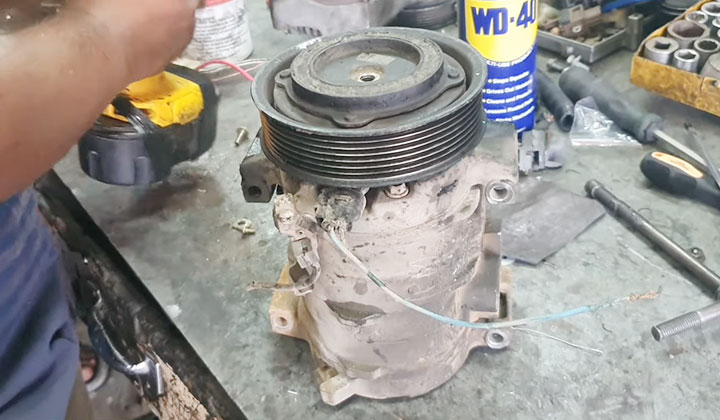How Does Auto Air Conditioning Work?
You might look at the air conditioning compressor as the heart of the air conditioning system in your car. In essence, the AC compressor performs for the system the same function that your heart does in your body — it provides the circulation of a precious fluid, the refrigerant, through the air conditioning system.
The compressor also compresses the refrigerant from a gaseous state to a fluid state, sending it to the condenser that acts as a “heat-exchanger” removing the heat from the refrigerant. From there, the refrigerant goes to an expansion valve or “orifice tube,” where it returns to its gaseous state.
Check for Power
The first and most obvious thing to do when your compressor won’t start is to make sure that the unit is receiving power. It is always possible that a fuse has been blown or that a breaker has been tripped. If such issues occur regularly, you should have an electrician take a look. It isn’t normal for the fuses and breakers to experience frequent problems. Constant stops and starts can wreak a lot of havoc on the compressor and on the air conditioning system as a whole.
If the fuses and breakers are fine, you may just have to call an HVAC contractor. The only exception is if you have access to a multimeter and know how to use it. If so, you can use it to check and see whether the right voltage is going into the compressor.
Preventable Causes of AC Compressor Failure
Take good care of your compressor with regular AC preventative maintenance. When you take good care of your compressor, it will take good care of the air in your space with consistent, reliable cooling. That means having your air conditioning system serviced at least twice a year by a reputable AC service company. Make sure you choose a service provider with knowledgeable, experienced technicians with MSCA or NATE certification. That way you’ll know that they have the expertise to spot and prevent the problems that can cause AC compressor failure.



